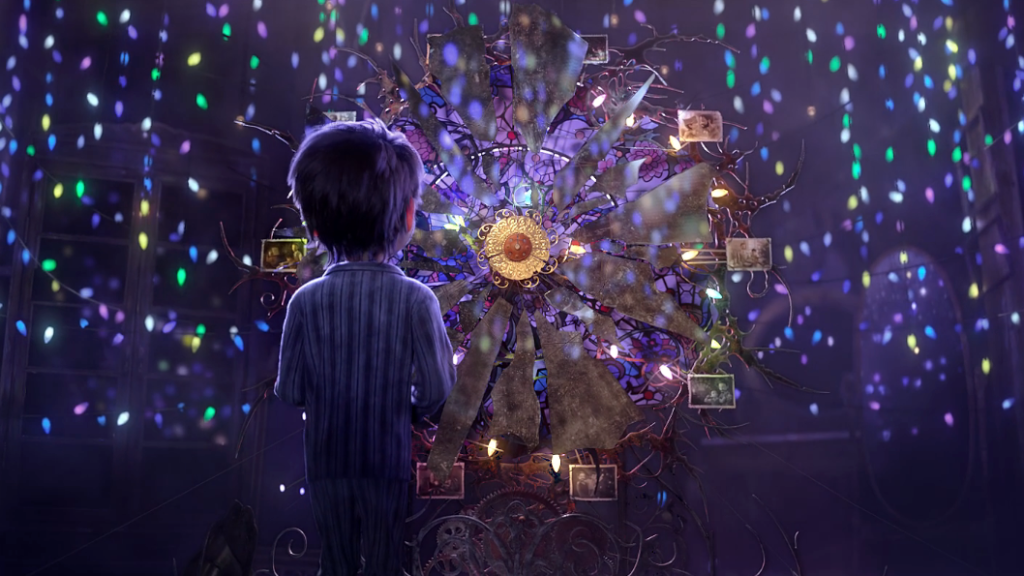This TIFF Award For The Best Film In The Shadows Shorts Competition explores a child’s understanding of losing their father.
It is said that monsters are born from our darkest thoughts. They are made of our fears, anger, and pain. It is only logical that they would also be some of the most empathetic creatures in this world. ALTER and veteran Director Carlos Baena (Pixar, ILM) deftly explore this concept in the short film masterpiece, La Noria.
La Noria opens on a grieving young boy trying to finish a replica of a Ferris wheel art project that he had been working on with his late father before the latter’s untimely passing. He finds himself unable to fit a copper center piece on a central spoke, and in his anger and struggle, knocks down the unfinished project. It is smashed to bits, and the copper piece rolls away into the darkness beneath his bed. Long associated with childhood fears, anxieties, and monstrosity, the dark place underneath the bed is naturally a place where the boy is unable to find the copper piece.
He is instead confronted with shadowy creatures that take on vaguely humanoid shapes. They are angry, wailing, and baleful beasts that seem to chase him first to the staircase that is lit up with wonderful string lights of varying colors. The juxtaposition of the lights on the stairs with the drab interior of the house and the dark creatures is fascinating, signaling a reversal of expectations if one is able to slow down long enough to process them. The grief-stricken boy, however, has no such luxuries. He panics, breaking through a locked attic door just as the monsters reach him. The monsters ultimately surround him in the attic. The boy turns in circles out of fear, looking at the monsters surrounding him, and also catches glimpses of himself in the mirrors and windows in the attic. His feelings overwhelm him, and he cries out just as a mirror bearing his reflection shatters.
A giant monster walks up to the boy in a Frankenstein’s monster-like fashion, and begins mimicking his movements. As the two approach one another, the monster reveals a hole where its heart should be. The boy is revealed to be clutching his chest in a mirror image. The monster then hands the boy the copper center piece from the beginning of the film. The other monsters step aside as the boy is able to place the center piece on the actual art project hidden away in the attic. The project lights up with string lights, moving like a Ferris wheel, and animates pictures of the young boy and his late father. The monsters wail mournfully as they fade away. The boy watches them disappear, before turning back to have a seat in front of the art project.

There is something to be said for stories that depict children dealing with tough topics like grief. This short film feels very much in the vein of A Monster Calls and Watership Down in its ability to handle heavy subject matter in a way that feels ageless and emotionally cathartic. When the ending comes, you are able to place the scenes in their symbolic places. The monsters of the boy’s dark feelings spur him to the hidden places where his grief and other emotions are hiding, waiting to be confronted. We also don’t get a Disney ending, where everything is tied neatly in a bow. The catharsis is limited to us knowing that he is finally beginning to process the loss of his father. We are given no inclination of a magical happily-ever-after. But we are given a realistic first step on his road to moving on, where he will hopefully learn that it will never be ok that his father is gone, but that it will get easier to accept.
If La Noria is not reason enough for ALTER to become a full studio with big budget productions, I’m not sure what would be reason enough.

Comments